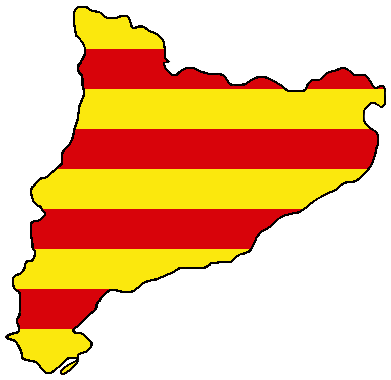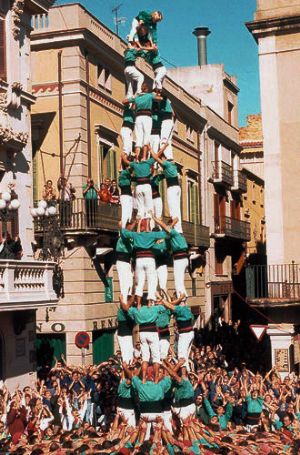Why Catalonia is Calling For Spanish Secession And Why it Probably Won’t Happen Anytime Soon
Scotland’s recent push for independence from the United Kingdom has shed light on similar movements all over. Many comparisons have been made specifically to what’s happening in Spain between the central government based out of Madrid and the region known as Catalonia, which borders France, speaks a different language, and has a whole lot of tension in its history with Spain. Here is some insight on the conflict.
Economy/Taxes
First and foremost, the main argument for Catalonia’s secession is economic. The Catalan city of Barcelona holds some of the strongest industries of Spain, which in turn fuels the country’s economy as a whole. But it also means that the Catalan people have to pay higher taxes and receive less in return.
Spain was one the hardest hit countries of the European financial crisis. But because the Catalan people feel no particular cultural connection to the rest of Spain, they feel it’s unfair to force them to have to carry the weight of the rest of Spain on their shoulders. For this reason, many of the people of Catalonia feel they would be better off as an independent state.
History
Before the 1700s, Catalonia and Castillo were independent of one another. Catalonia was governed under its own constitution, and was ruled under the Crown of Aragon. The two regions were unified in 1707, after the War of Spanish Succession, which essentially split Spain from Europe. By 1716, Catalonia had been fully united with the Crown of Castillo.
Fast forward a couple hundred years later, brutal fascist dictator Francisco Franco took power during the Spanish Civil War from 1936-39. During Franco’s reign, the Catalan language was legally banned from mass media, and those who were caught speaking it were at risk of extreme legal punishment. Tensions between the Catalan people and the rest of Spain that stem from Franco’s reign have lasted through the years until the present.
Language
Catalonia has its own language, which is based as much in Spanish as it is in French, Italian, and Portuguese. Although most people within the city of Barcelona are bilingual and can also speak Spanish fluently, in most rural sections of Catalonia no one speaks anything beyond Catalan.
Culture
The two regions have many subtle distinctions in culture. In Pamplona, a famous tradition is the running of the bull, which celebrates the chaos and unpredictability of life. In Catalonia, the most famous tradition is the human tower, where many people work together to climb on top of one another until there is a giant tower consisting entirely of people. The human tower celebrates more the organization and cohesiveness of things.
Why It Probably Won’t Happen
A lot of weight was placed on the outcome of the Scottish vote in September. Inasmuch as devolution seems to be the inevitable revolution of our time, the fact that democracy failed to grant Scotland its independence despite a long lasting history of mistreatment from the United Kingdom may speak toward the way things will turn out in the various other movements around the world.
Furthermore, compared to Scotland, Spanish President Rajoy has been far more stubborn in granting the Catalan people the right to have such a vote. That being said, the Catalan self-determination referendum is scheduled for November 9th. A violent history tacked onto differences both in language and culture have fueled pressure between these two very distinct parts of a single country for generations, and we will soon see whether such pressure will reach a breaking point.
Whether you’re interested in engaging more in Spanish or Catalan culture, contact Langauge Trainers to study the region’s language for work, travel, or personal purposes. Get started on your Spanish studies today by taking a free online language level test. Want to catch up on Catalan before traveling to the Northern regions? Contact us today about our personalized course packages!


